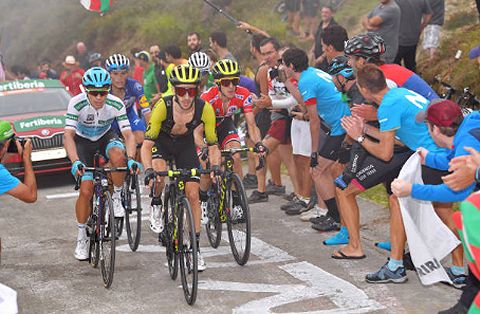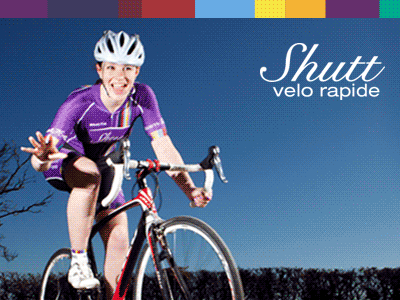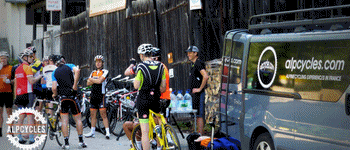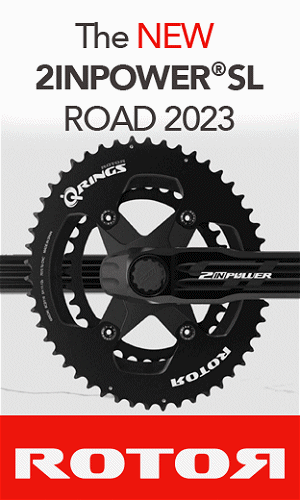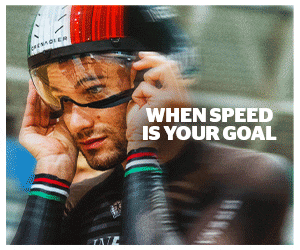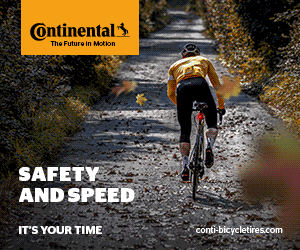ASO say the 2019 Tour de France will be the highest in history with 30 categorised climbs and five mountain top finishes
 |
News: Tour de France New Highs
In Summary:
– Distance: 3460km
– Stages: 21 stages
– Summit Finishes: Five 3 finishes above 2000m)
– Categorised Climbs: 30 category 2 or harder climbs
– Time Trial Ks: 54km (inc 27km TTT & 27km Ind TT)
– Longest Stage: 7 (230km) Another two over 190km
– Short Stages: Four short stages under 131km
– Winners: Team Sky have won six of the past seven editions (Wiggins/Froome/Thomas)
Whilst a lot is being written about the route for the 2019 Tour de France, it is the riders year in year out who take on the challenge who have the best insight along with their team managers who are also former riders.
A popular winner in 2018, Welshman Geraint Thomas says of it “you’ve got to be able to climb and you’ll need a strong team around you… and then there’s the time trial in Pau, which will be crucial. It’s always hard – it’s the Tour de France. There’s a lot of climbs over 2,000 metres of altitude and I seem to perform well at that height, so I like it”.
“It will suit the usual Tour rider – a well-rounded rider with a balanced team”. Thomas highlighted La Planches des Belle Filles, the race’s first summit finish, as one to watch. “We’ve done that climb quite a few times before but not the extra bit we’ll do next year. It will spice things up a bit! There’s a lot of other stages that stand out as well. It should be another great race.”
… continued after advert
Four time winner Chris Froome had this to say “It’s a tough route like all Tour de France’s, but what really stands out for me are the multiple finishes over 2000 metres, and that is going to really stand this route apart from previous ones.”
Sprinter Mark Cavendish who has just re-signed with Dimension Data, said of the 2019 Edition “it gets harder every year. It is nice to start in Brussels with a sprint and then it’s pretty relentless to Paris but at least we have a chance of getting through this time.” On the number of possible sprint stages, he says ‘six’. “There a few ‘Sagan’ stages but six sprint stages.”
The goal for Cavendish is to win four stages to set the record for the number of stages won in the race in all time. “It won’t be easy. After winning 30, it sounds easy but it isn’t as easy as it sounds so we’ll see what happens. I’m getting old now but I like the course, 21 flat stages would be better but it’s a beautiful course”.
Winner in 2018, Geraint Thomas, says the route suits him so will we see him win another Edition to add to Sky’s domination over the last decade.
Tom Dumoulin, Sunweb’s GC contender: “It’s a very tough route. Of course more individual time trial kilometres would have been better, so it’s not an ideal course for me, but that was also the case this year. There’s a lot of high climbing (2000+m) with emphasis on the second half of the Tour with the Pyrenees and the Alps to be decisive.”
Julian Alaphilippe (KoM winner for Quickstep), one of the star attractions at this year’s Tour de France, says of the race “at first glance, it’s a very mountainous course, with so many tough climbs, especially those crammed in the last week, when we’ll constantly go over 2000 meters, a factor which could significantly impact the race”.
“I am happy we’ll start from Belgium – the country of Quick-Step Floors – where we will get some chances to show ourselves, before crossing the border into my beloved France”, said 26-year-old Julian, who has been victorious in 12 races this season.
“Of course, I’ll go with ambitions there, although it’s still too early to name my goals. I need to have a closer look over the route together with my trainer and the team, before deciding what my targets will be.”
Alaphilippe Pic: Getty Images
Team Sunweb coach Luke Roberts added: “It looks like a course that is designed for the climbers with few time trial kilometres. Both the early team time trial and the individual time trial in the second part are pretty limited with the gaps that could open up. Looking towards the final week, the mountain stages in the Alps are quite brutal with lots of climbing over 2000 metres, which really tips the scale much more in favour to the climbers. It will be a really tough race decided by those days in the Alps.”
Matt White of Mitchelton Scott, the guiding hand for the Yates twins Simon and Adam, says of the 2019 Tour de France, “It’s certainly got a bit for everyone, but, of course, the devil will be in the details and we need to see the profiles and the final three kilometres for those 6-7 ‘between’ stages to see what impact they will have.”
“There are two things that stand out for me – the altitude gain with how high we are going and then the distance of the stages.”
“It’s not necessarily the hardest Tour de France route climbing wise, but what’s different about this year’s route, is that I have never seen a Tour de France go so high. There is some serious altitude and climbs, high-wise. There’s been Tour de France routes in previous years that haven’t gone above 2000m on any stage, and off the top of my head, there would be close to 10 times we are going over 2000m next year, including some high finishes too”.
Will we see both the Yates twins again in a Grand Tour together in next years Tour de France? Has the route been designed to help them and others see of the Sky domination?
“We’re going up a climb that’s 2,700m, I’ve never heard of that – is that Tour history (?) and I think one of the stages next year is the highest finish the Tour has ever had.”
“The team time trial will be undulating, it will be solid, and the second time trial actually has two climbs in it. Again, I don’t remember a Tour de France with this little time trialling, especially individual time trialling. The individual TT has a filthy stage to follow, probably one of the hardest stages of the Tour, so that can be a factor. Riders go so deep in a time trial, on different bikes, and some guys do pull up a bit rougher than others.”
Marc Sergeant (Lotto Soudal): “The Tour direction obviously wants that the overall winner is determined as late as possible. They want to limit the time gaps between the GC riders as long as possible. There are not much time trial kilometres either. For us that’s not so important. We are going to the Tour with a sprinter.”
“There will probably only be two sprints in the first week. On those occasions we want to aim for victory with Caleb Ewan. The sprint opportunities are more spread over the entire Tour. Pretty early there will already be opportunities for riders like Tiesj Benoot, Thomas De Gendt and Tim Wellens if he would ride the Tour again. In about half of the latest editions, the Tour didn’t start with a time trial. Also this year it starts with a normal stage. Of course we have the ambition to win it. It would be fantastic to do that in Brussels. But we won’t be the only team with that ambition.”
Caleb Ewan should be Lotto Soudals weapon for the sprint stages
Greg Van Avermaet: “This will be the first time in my career that Le Tour starts in Belgium. We have passed through Belgium but to have the Grand Depart there will be a special feeling. I think the preparation in Brussels and the atmosphere will be really nice. From Brussels, we will see what the road brings. There are a few stages that I like the look of and I think could suit me, the first one being stage three with the finish in Epernay. There is also the TTT which is always a focus for us.”
… continued after advert
The Race
The 2019, Tour de France will start in Brussels to honour Eddy Merckx with a near 200km stage featuring the legendary Muur van Geraardsbergen. Belgium’s capital also gets to host stage 2, a 27km-long team time trial finishing near the Atomium, the landmark building constructed for Expo ’58.
The anti-clockwise route continues with an opening week that will include several testing climbs in the Vosges and the Massif Central, without neglecting the sprinters, who’ll have their fair share of opportunities to shine.
But the talking point was the GC possibilities for the riders like the the back-to-back Alpine stages taking in the icon climbs of the Col d’Izoard and the Col du Galibier as well as the 2,770m-high Col d’Iseran, the highest paved road in Europe.
The first climbing battle, where perhaps the race won’t be won but dents could appear in some rider’s GC ambitions, begins in earnest on stage six to La Planche des Belles Filles with a new finish featuring a dirt road final kilometre with gradients up to 24%. Froome, a winner there before, says of it “I’ve always enjoyed racing up La Planches des Belle Filles and it will definitely be interesting this year, especially with an added kick at the end. It should sort the men from the boys.”
After that, the race will head south west across France towards the Pyrenees where there will be a time trial around Pau. Then, a summit finish on another icon of the race, the Tourmalet and then a stage that goes over the imposing Mur de Péguère before finishing above Foix at Prat d’Albis.
The race then heads for the Alps where the GC battle will be fought for. A brutal stage 18 takes riders over the Col de Vars, the Col d’Izoard and the Galibier on a stage of 207km. Then the following day, stage 19 (only 123km) includes the Col d’Iseran, before the penultimate stage up to the finish at Val Thorens.
The Route 2019
The Route 2019
Stage 1 192 km Bruxelles / Brussel (Sprint)
Stage 2 27 km Bruxelles Palais Royal / Brussel Atomium (TTT)
Stage 3 214 km Binche / Épernay (Sprint)
Stage 4 215 km Reims / Nancy (Sprint)
Stage 5 169 km Saint-Dié-des-Vosges / Colmar (Med Mountain)
Stage 6 157 km Mulhouse / La Planche des Belles Filles (Med Mountain)
Stage 7 230 km Belfort / Chalon-sur-Saône (Sprint)
Stage 8 199 km Mâcon / Saint-Étienne (Hilly)
Stage 9 170 km Saint-Étienne / Brioude (Med Mountain)
Stage 10 218 km Saint-Flour / Albi (Hilly)
Rest Day
Stage 11 167 km Albi / Toulouse (Sprint)
Stage 12 202 km Toulouse / Bagnères-de-Bigorre (High Mountain)
Stage 13 27 km Pau / Pau (ind. TT)
Stage 14 117 km Tarbes / Tourmalet (High Mountain)
Stage 15 185 km Limoux / Foix (Med Mountain)
Rest Day Nîmes
Stage 16 177 km Nîmes / Nîmes (Hilly)
Stage 17 206 km Pont du Gard / Gap (Med Mountain)
Stage 18 207 km Embrun / Valloire (High Mountain)
Stage 19 123 km Saint-Jean-de-Maurienne / Tignes (High Mountain)
Stage 20 131 km Albertville / Val Thorens (High Mountain)
Stage 21 127 km Rambouillet / Paris Champs-Élysées (Celebration Sprint)
Cycle Division’s Shop
Send your results as well as club, team & event news here
Other Results on VeloUK (including reports containing results)
- RR Result: East Cleveland Classic
- Features, Reports, Results
- Crit Result: Thruxton Tuesday Series 2
- Crit Result: CDPP Sport Crit Series 1
- Crit Result: SACA Salt Ayre Series 1
- Crit Result: Portsmouth Evening Circuits 4
- Crit Result: Rowe & King Maindy 1
- Q&A: Charlie Abraham (Lee Valley Youth Junior Cycling Team)
- Events: SSSCCRRL Road Race League
- Youth Result: Isle of Man Youth League
- Youth Result: Lawford Youth Series (Curborough) #2
- Crit Result: Full Gas Summer Circuit Series #2
- Crit Result: Ride Flux Spring Crit series #2
- Youth Result: Maindy Flyers Freewheel League 1
- Ribble Collective: Ride More in ’24
- Crit Result: Tameside Cycling Development Circuit Races 1
- Crit Result: 2024 West Thames League 1
- Startlist: The Drummond Trophy
- TT Result: VTTA Surrey/Sussex 10 mile TT
- EVENTS: Proper Northern Road Races – Round 2 Oakenclough
- TTT Result: Scorton TTT
- TT Result: Manchester & District TTA 25m TT
- TT Result: Stowmarket & District CC 15m TT
- TT Result: Paceline RT Sporting TT
- TT Result: Hereford & District Wheelers 25m TT
- RR Result: Yorkshire RRL #1
- Crit Result: Scottish Student Cycling Criterium Championships
- Events: Dave Peck Memorial
- TT Result: Blaydon CC Two Up TT
- TT Result: Kent CA 10m TT
- TT Result: Wessex RC 24m TT
- TT Result: Easterley RC 25m TT
- TT Result: Cranbrook CC 10m TT
- TT Result: Penzance Wheelers 12.5m TT
- TT Result: Fife Century RC 25m TT
- TT Result: Bramley Wheelers 10m TT
- TT Result: Mid Shropshire Wheelers 25m TT
- Youth Result: Hog Hill GP (National Youth Series)
- RR Result: Velo Club Venta Spring Road Race
- News: Women’s Tour of Britain
- Crit Result: Ennerdale Season Openers 2
- RR Result: NCRA Handicap RR (week 5)
Other News on VeloUK
- Events: SSSCCRRL Road Race League
- Ribble Collective: Ride More in ’24
- Startlist: The Drummond Trophy
- EVENTS: Proper Northern Road Races – Round 2 Oakenclough
- Events: Dave Peck Memorial
- News: Women’s Tour of Britain
- Startlist: PB Performance Espoirs Road Race
- East Cleveland Classic: Saint Piran Team
- News: New kit for Ribble Rebellion Riders
- Events: Halesowen Friday Track Nights
- Team News: Ribble Rebellion off to the USA
- News: Pedal Club Lunch (March)
- Rider News: Winning start for Billy Ladle
- News: CiCLE Classic 2024
- Startlist: Stars of the SW Men’s U23 RR
- Startlist: Danum Trophy 2024 (Nat B)
- Startlists: London Dynamo Road Races
- Startlist: La Fleche Waltonne Road Races (BMCR)
- Meet Ribble HoloRider
- Startlists: East Cleveland Classic 2024
- Former Winners: Lincoln Grand Prix
- Chris Lawless Joins Saint Piran Team
- Paracycling Track Worlds Day 4
- Para CyclingWorlds Final Day
- Startlist: National Youth Circuit Series Rd 1
- Report/Result: Azets Spring Classic
- Startlists: RCR Fat Creations Road Races
- Startlist: Capernwray Road Race (March 31)
- Team Report: Fensham Howes MAS Design Junior Team
- Team Report: CiCLE Classic Junior Men
- RIDER REPORTS – Zoe Parker (Solihull CC)
- GB News: Two World Titles for GB at Para Worlds
- Team News: Alba Development Road Team
- News: British Road Champs Return to NE
- THIS WEEKEND: Peaks Two Day is Back!
- News: Laura Kenny Retires
- Team News: Lee Valley Youth Cycling Team
- 2024/25 CYCLO-CROSS CALENDAR
- Startlist: Cardiff Ajax CC 10 Mile TT
- Startlists: 16th Gifford Road Races (Scotland)










